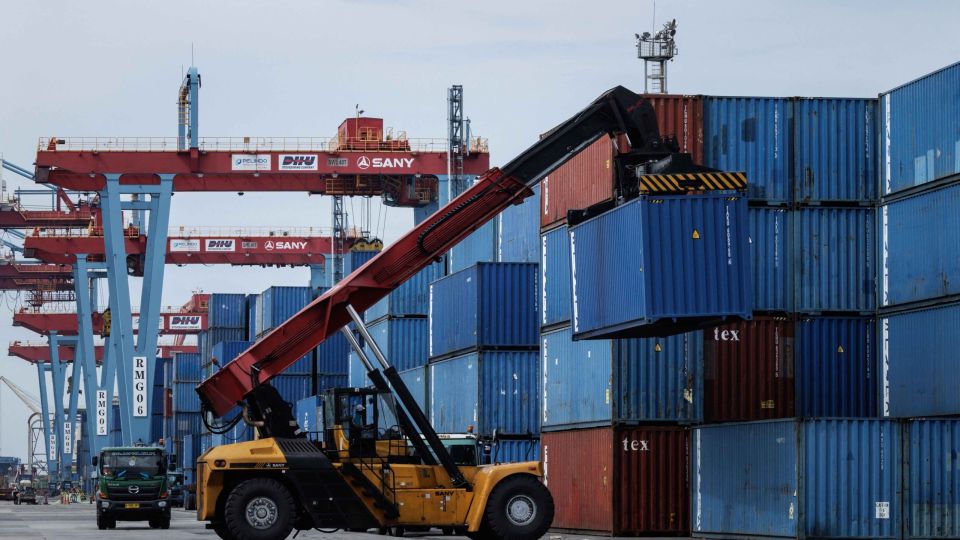
The move comes after Malaysia announced on Tuesday that it had imposed a five-year antidumping duty on imports of polyethylene terephthalate (PET) from Indonesia and China.
Indonesia’s Trade Ministry says it will carefully “monitor” Malaysia’s antidumping duty imposed on Indonesian plastic goods and may bring the matter to the World Trade Organization (WTO) “if necessary”, while experts urge swift action to protect domestic industries.
The move comes after Malaysia announced on Tuesday that it had imposed a five-year antidumping duty on imports of polyethylene terephthalate (PET) from Indonesia and China.
PET is a transparent thermoplastic polymer, commonly used in textiles as well as in packaging for food and beverages containers.
Kuala Lumpur said its decision came after an investigation was initiated in August, following a petition from a local producer in Malaysia.
Malaysia’s Investment, Trade and Industry Ministry (MITI) said in a statement released on Tuesday that it had found PET being imported into Malaysia at prices below those in Indonesia and China, “causing material injury to the domestic industry in Malaysia producing the like product”.
It subsequently slapped a 37.4 percent duty on all incoming Indonesian PET exports beginning on May 7, while those from China are subject to tariffs ranging from 2.3 percent to 11.7 percent.
The duties on PET imports are to remain in effect until May 6, 2030.
Djatmiko Bris Witjaksono, director general of international trade negotiations at Indonesia’s Trade Ministry, told The Jakarta Post on Wednesday that the government was consistently assessing policies from trade partners, including on trade remedies like antidumping duties for goods imported from Indonesia.
“The government is monitoring the procedural and substantive aspects. If legal steps at the WTO are deemed necessary, they will be taken by the relevant authorities in due course,” he asserted.
The Malaysian Embassy did not immediately respond to a request for comment.
Krisna Gupta, a senior fellow at the Center for Indonesian Policy Studies (CIPS), said the government should immediately submit a request for the investigation results and hold consultations with MITI before formally notifying the WTO of its objection.
“We definitely don’t agree. But imposing an antidumping duty mechanism is allowed, so it’s a fair [practice]. What matters now is how we present the case,” he told the Post on Wednesday.
Andry Satrio Nugroho, head of the trade, industry and investment center at the Institute for Development of Economics and Finance (Indef), argued that the situation signaled a lack of government support for the domestic PET industry.
He told the Post on Wednesday that the government had taken few concrete measures to challenge dumping allegations directed at the domestic PET industry over the past year.
The Indonesian government itself has in the past considered a similar measure, with the Trade Ministry proposing antidumping duties on PET imports from Malaysia, China and South Korea to the Finance Ministry in 2018.
However, the plan did not move forward amid concerns among other industry players that it could drive up prices, especially for food and beverage goods.
The absence of antidumping measures on PET imports had made domestic producers less competitive, Andry explained, adding that they were now struggling to sell their products locally, while the imposition of import duties could hinder their exports.
Andry also warned that the petrochemical industry, which produces PET as one of its downstream products, could suffer a knock-on effect, leading to layoffs.
He urged the government to prepare solid evidence to challenge Malaysia, highlighting the need to investigate possible transshipment producers from China operating through Indonesia.
Straining regional ties?
Krisna from CIPS stressed that import duties based on investigations, such as antidumping, countervailing and safeguard duties, were a legal practice under international trade frameworks like the WTO and its predecessor, the General Agreement on Tariffs and Trade (GATT).
Both Indonesia and Malaysia have previously imposed antidumping duties, he noted, implying that it was a common trade practice and did not inherently pose a threat to regional ties.
However, Andry from Indef noted that the imposition of such trade remedies challenged intra-ASEAN consolidation, and specifically efforts to respond collectively to global trade pressure from sweeping United States import tariffs announced last month.
Jakarta previously stressed the need to boost intra-ASEAN trade in response to the US “reciprocal” tariff policy against products from dozens of countries but also remains committed to engaging in dialogue with Washington.
But Andry said diverging national interests within the bloc presented a challenge in strengthening intra-ASEAN trade, which highlighted the need for ongoing regional coordination to address measures that could adversely affect each state member.
“Dialogue should be prioritized before taking any measures like retaliation,” he said.
Malaysia’s decision to impose the antidumping duty came despite Kuala Lumpur’s recent efforts to engage in bilateral talks with ASEAN leaders, including with President Prabowo Subianto.
In a phone call last Saturday, Malaysian Prime Minister Anwar Ibrahim and President Prabowo reiterated their commitment to comprehensive bilateral cooperation.
Anwar also held a joint phone call on April 30 with President Prabowo, Brunei’s Sultan Hassanal Bolkiah and Laotian Prime Minister Sonexay Siphandone, during which they discussed the ongoing negotiations with the US regarding tariffs.
“I stressed the importance of a cohesive ASEAN approach to safeguard the region’s long-term interests and economic resilience,” Anwar stated in an Instagram post.
Source: Asian News
Share: